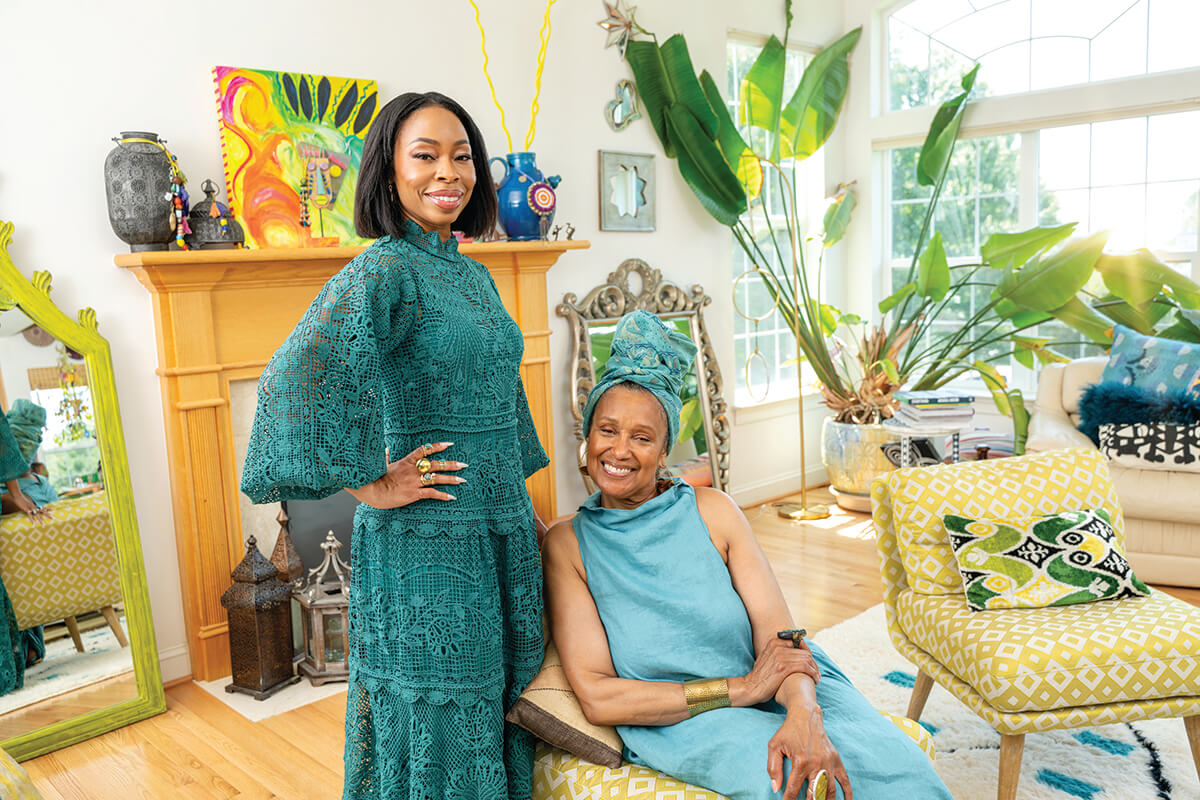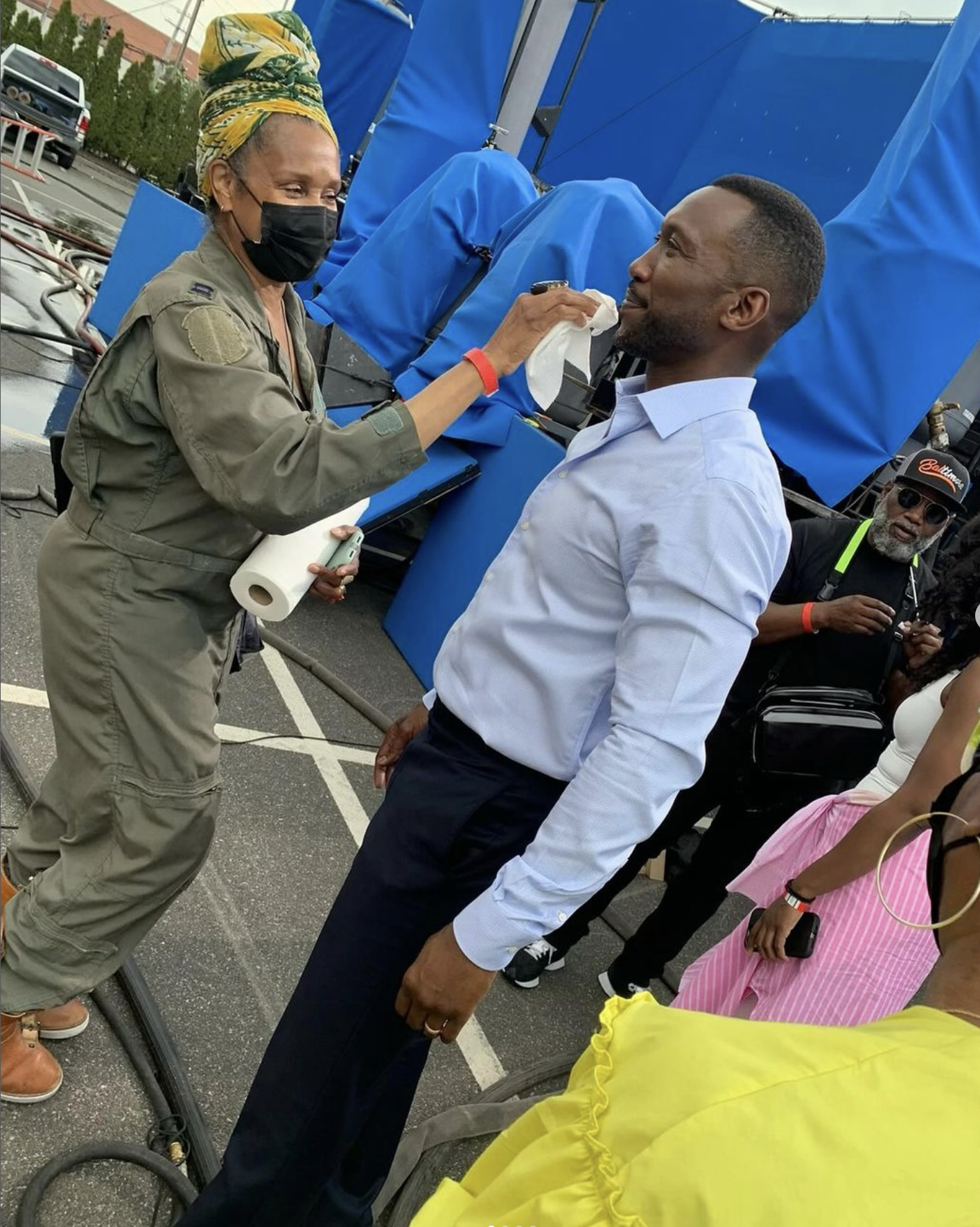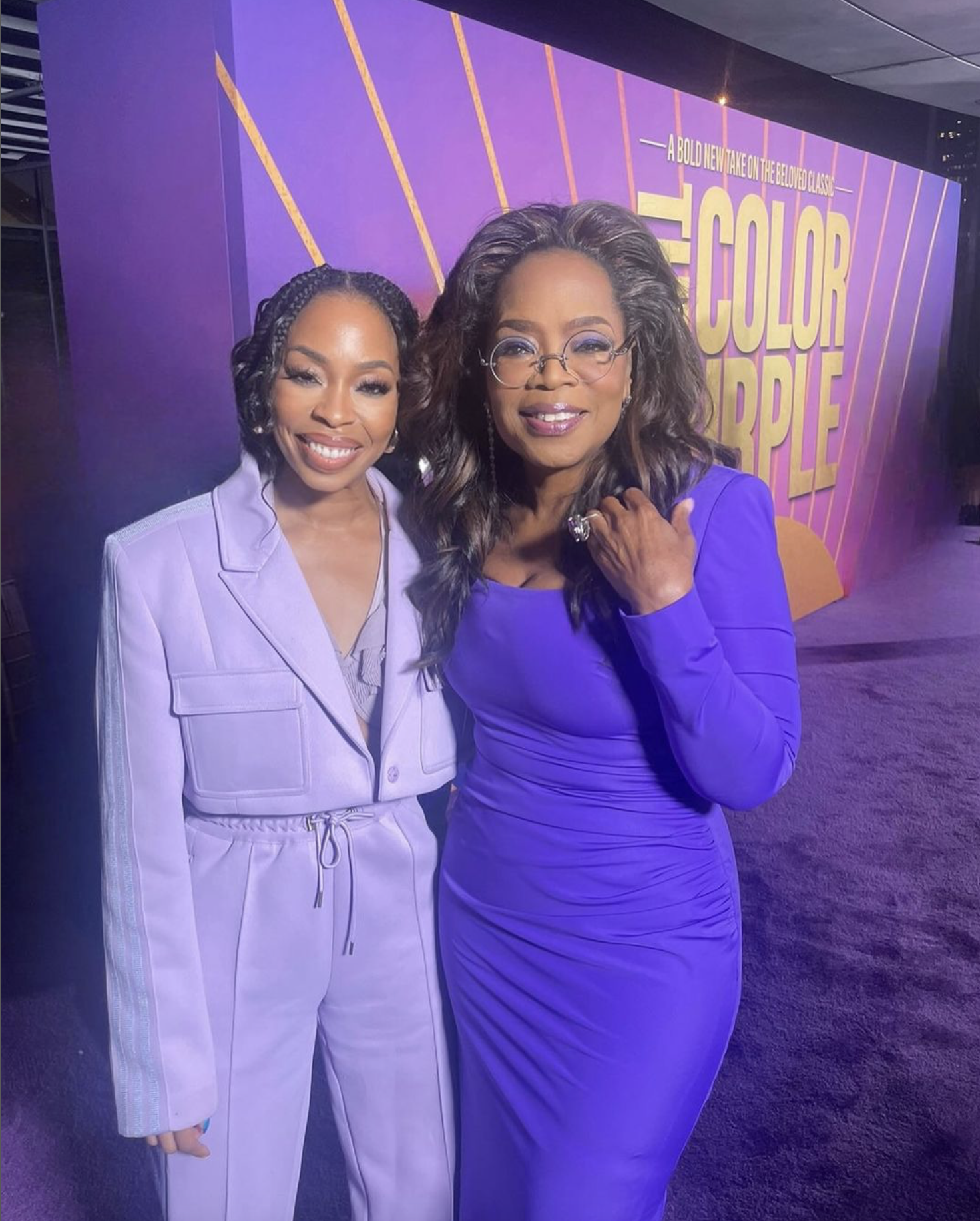Arts & Culture
Meet the Baltimore Mother and Daughter-in-Law Who “Make Up” Hollywood
Emmy-nominated makeup artists Debi Young and Ngozi Olandu-Young got their starts at the Baltimore Police Department—between shifts fielding emergency calls—and behind the cosmetics counter at Nordstrom in Towson, respectively.

“Authenticity is in the tiniest of details,” says makeup artist Debi Young. “I’d just done Watchman with Jean Smart, where she had played a sharply dressed FBI special agent. And now for Mare of Easttown [the acclaimed HBO series], I wanted to do broken capillaries on her face and give her a little rosacea. And she’s like, ‘Can you give me dishpan hands?’ She had to become this Pennsylvania grandma.”
“If her character went to a party or an event, she had to look like she did her own makeup,” continues Young, with a smile from her Owings Mills home. (She’s seated, in the photo above, next to her daughter-in-law, who is also a makeup artist.) She’s clearly pleased the elegant Emmy-winning actress was almost unrecognizable from role to role. “Not the same person, right?”
Young, herself a four-time Emmy nominee and NAACP Image Award-winning makeup artist and makeup department head, recently wrapped a forthcoming musical co-produced by Pharrell Williams. She has worked on films and television series, including Shirley, Ma Rainey’s Black Bottom, Fences, Jackie, True Detective, Treme, and The Wire.
She got her start, of all places, in the Baltimore Police Department—between shifts fielding emergency calls. On break in the ladies’ room, Young, whose positive vibes exude from every pore, did her colleagues’ makeup and noticed they felt better about themselves afterward. (Actor Wendell Pierce, who she worked with on The Wire and Treme, called her his “therapist” in one interview and said sitting in Young’s makeup chair “brings a calm to your day.”)
The BPD ladies’ room sessions gave her sense of gratification and after her second son was born, she withdrew her pension contributions and quit to pursue an aesthetician’s license. A client who hosted a local television show asked Young to do her makeup in exchange for a screen credit, and soon she was on the set of NBC’s hit, Homicide: Life on the Street.
Of course, the author of the book that led to the TV series turned up during filming. Young recognized David Simon as the same reporter who used to come into her BPD communications department, looking for police reports. “It’s crazy how things overlap,” she says.
It is not the only part of Young’s life and career that overlaps. Years later, she met Ngozi Olandu Young—her future daughter-in-law but then a Morgan State student—working behind the cosmetics counter at Nordstrom in Towson Town Center. Impressed with her patience and attention to detail, she mentored and eventually hired her as an assistant on The Wire, throwing her into the deep end.
“My first episode? ‘Hamsterdam.’ Where I had to do 183 extras and make them look down and out while they’re buying and using drugs and everything,” Olandu Young recalls. “I was on Google trying to research what drug addicts look like. I talked to my dad, a psychiatrist who helped people with drug and alcohol abuse issues.”
Olandu has gone on to her own Emmy-nominated career and, among major TV and film efforts, just wrapped Spike Lee’s remake of Akira Kurosawa’s 1963 film High and Low.


While working on The Wire and other projects, Young has become something of an expert on blood—its coagulation, hues, and the various color stains it leaves, depending on circumstance. Same with dirt. “Dirt and mud from different parts of the country have their own textures and colors and you have to get that right,” she says. However, the artistry, which also includes using prosthetics, is about creating characters.
“If you are a sweaty drunk, you’re going to be a sweaty drunk when you get up out of my chair,” Young says. “I have my idea of what a character should look like as I read the script, making my notes. I also know the cast is arriving with that character in them already and I need to hear how they see themselves. I take what they say, how I see it, and what the vision is of the writer or the director and try to make it a collaborative effort.”
While growing up, Young’s father had a barbershop on Edmonson Avenue. The Harlem Theater was around the corner and her mom, a nursing assistant, worked weekends. So on Saturdays, her father would drop Young and her siblings off at the cinema while he cut hair.
“We would watch two or three movies and come back [to the barbershop]. I was always pouring his tonics and lotions in my hand, practicing on people, just as I was playing with my mother’s makeup on her vanity,” Young recalls. “I still remember when I was nine or 10, he said to me, ‘Your name is going be on credits like that,’ pointing to the television. I said, ‘What are credits?’ And he told me those are the names of all the people who worked on the movie to make the movie.”